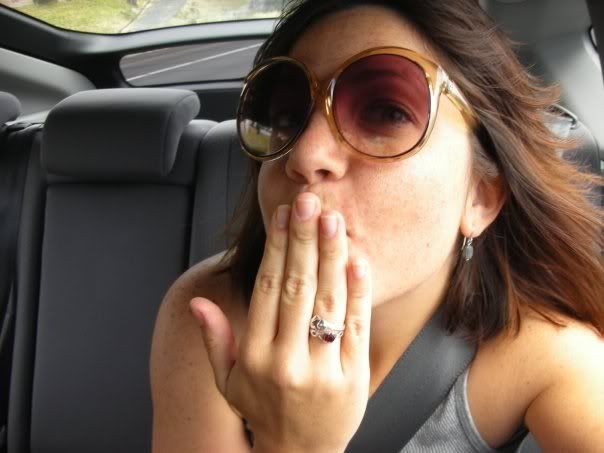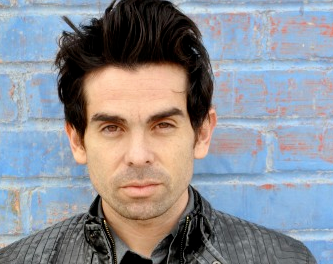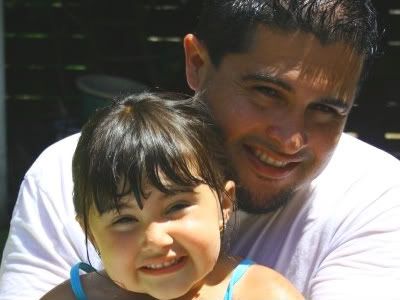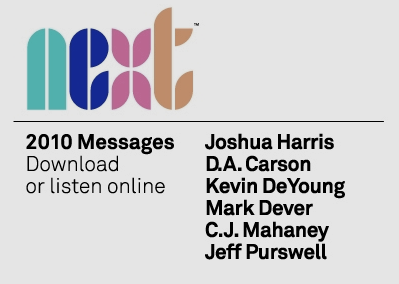Her eyes stayed fixed on the pregnancy test. Two lines or one? The 4 minute timer seemed to be dragging the time with a ball and chain. As the time ticked on Carmen and I talked about her possible pregnancy.
“If the test is positive, what do you plan to do?” I asked.
“Oh I would have to get an abortion,” she replied.
“A lot of women come through our center without being informed or knowledgeable about the abortion procedure. It’s a good idea to do your research and not be in the dark. Have you looked anything up online?”
“Yeah.”
“What did you find? What did you think?”
“It was kind of scary…but I try not to think about it.”
Carmen did her homework and the fear blinded her, she made a decision right then; a decision to look away. Carmen’s last statement is a reflection of our society, we try to not think.
In his book on Philosophy, The Consequences of Ideas, Philosopher R.C. Sproul tells a story about a street sweeper. Sproul was a Philosophy major looking for a summer job in 1959, he was offered work in the maintenance department of a hospital. A coworker surprised Sproul by engaging with him in philosophical concerns and ideas. Sproul was intrigued by a man whose occupation was in sweeping driveways but who was also knowledgeable in Sproul’s field of study. This street sweeper was a Philosophy Professor in Berlin, Germany during World War II, his ideas were at odds with Hitler’s Third Reich so he was removed from his position. When he spoke out against the Nazi’s his wife and children were arrested and executed; he escaped from Germany with one daughter. He no longer taught philosophy because it had destroyed his life. Sproul said, “I was pushing a broom because I lived in a culture that sees little value in philosophy and gives scant esteem to those who pursue it. My friend was pushing a broom, on the other hand, because he came from a culture that gave great weight to philosophy. His family was destroyed because Hitler understood that ideas are dangerous. Hitler so feared the consequences of my friend’s ideas that he did everything possible to eliminate him-and his ideas.”
Where have we gone in our thinking as a culture? What happened to the exchange of thoughts and ideas? The open forums? Speaking out in the town square? Where is the Athenian Acropolis of our time? Are we so afraid of thinking? Is darkness a comfort to us? Philosophers of the past were concerned with finding truth, now we believe truth cannot be found. The tidal wave of post-modernism fueled by the idea of relativism has drowned our society in mud. We reject Meta narrative, words no longer have any intrinsic value or meaning attached to them, and anything goes. To each his own, live and let live is the mantra of our time. Everything is absurd and lacks meaning, such as in Samuel Beckett’s play, Waiting for Godot , where two men banter in nonsensical ways, where their physical actions do not match what they are saying. These two men are waiting for Godot (some literary scholars would say Beckett means God here) but he never comes. In a society where anything goes, there is no right and wrong, where do we end up? Where do these ideas take us? We have rejected any standard; we have no center, no reference point. No meaning, no truth, and only absurdity lead to death in many forms.
The famous Oxford professor and writer, C.S. Lewis wrote a book titled Mere Christianity. This atheist turned Christian philosophizes in his writing about right and wrong as a clue to the meaning of the universe; Lewis appeals in chapter one to the law of human nature. He talks about quarrels: everyone says things like, “How’d you like it if anyone did the same to you? “That’s my seat, I was there first”-“Leave him alone, he isn’t dong you any harm”-“Why should you shove in first?” “Give me a bit of your orange, I gave you a bit of mine”-“Come on, you promised.” Lewis says in all of these statements we are appealing to some kind of standard of behavior, which we expect others to follow. We have rejected this type of thought in today’s culture. The old Philosophers would call this the Law of Nature, meaning the law of human nature and how we are all governed by an internal law that shows us right and wrong; this is the human idea of decent behavior, which was thought to be obvious to everyone. Lewis would say we believe in this law whether we admit it or not: “If we do not believe in decent behavior, why should we be so anxious to make excuses for not having behaved decently? The truth is, we believe in decency so much-we feel the Rule of Law pressing on us so- that we cannot bear to face the fact that we are breaking it, and consequently we try to shift the responsibility.”
Could Carmen’s choice to look away and not think be a suffocation of the Law of Nature? Why would she feel the need to not think about it? What was it about the information she found that caused her to choose to ignore it even though her emotional response was fear? I went on to explain to Carmen the importance of her choice and the possible consequences. I told her that many women come into our crisis pregnancy center in a hurry to terminate the pregnancy, their thoughts and emotions are traveling full speed and their reaction is abortion. Many of these women come back to the center for post abortion counseling, because of the guilt and regret they feel for making their choice. I encouraged her to slow down in her thoughts and emotions and make sure she weighed her options. I encouraged her to research and think clearly and deliberately. We never fully realize how our choices today will affect us down the road.
I shared a true story with Carmen about my sister’s two miscarriages. My sister’s first miscarriage occurred 3 months into her pregnancy and the grief she felt was the same grief a mother would feel if her 3 year old child had died. Why is that? Because the maternal instinct kicks in immediately once the women knows she is pregnant. She knows that’s her child and the loss grieves her. My sister had another miscarriage at 4 weeks and the grief was still present. Our society would mourn with my sister in both cases, because she wanted that child. What if my sister didn’t want the child? What if she went to an abortion clinic and had the procedure done? We know what society would think of this; they would worship my sister for exercising her right to choose. Do we see the contradiction of this thinking? Do we care about the contradiction? What if an armed robber invaded my sister’s house and when confronted he punched her in the stomach and beat her to a pulp? We would stand in horror at the injustice against my sister as her child died inside her. If we think this is injustice, what happens in the abortion clinic? What happens in our philosophical ideas as a culture when we demand justice with an armed robber and mourn through a miscarriage, but we turn our heads and try not to think about what happens in the abortion clinics? We want to save the rainforest, we want to save trees, we want to protect the animals lives, we even enact laws to do this which are good, but what about human life that is developing? We protect the life found in a turtle’s egg, what about a woman’s? Again, where is the standard? Why is it being applied to animal and plant life but not human life?
Does this make sense to you? Maybe you are like Carmen and decided to not think about it a long time ago. Why aren’t you thinking about it? The ancient philosopher Socrates said, “The unexamined life is not worth living.” If we neglect philosophy, neglect thinking, then you might as well commit suicide and these unborn babies lives are not worth living. Where are the great thinkers of our time? Are they too busy engaging in absurdity and like Beckett’s characters they are waiting for something they already believe will never come? Where are the men and women who will boldly think and seek to find truth? They died a long time ago.
As I sat in the counseling room with 21 year old Darsand my heart was stirred by her story and the injustice she experienced her entire life.
“I thought I was going to die many times,” she told me.
Darsand had no place to live, except for a teen shelter called Covenant House. Since she was 14 she had been emotionally and physically abused by her mother, and at 18 she was raped by one of her male friends. Last year she was in a relationship with a guy who she later found out was bi polar; last October he beat this 100 pound girl like she was a 200 pound man. She told me that as she was being kicked and beaten on the ground thoughts of death came into her mind and she cried out to God to help her. At that moment a man on the street intervened and she was rushed to the hospital, her face bruised and broken beyond recognition. The doctors told her she should have died, yet as I looked at her perfect face in front of me life coursed through her veins. As her and I talked about a possible pregnancy she said she would never have an abortion, she said she could never do that. Her test was negative but this girl who had experienced the most horrific acts of injustice and suffering valued justice and human life. Darsand would never have had enough income to provide for a baby; Carmen’s income was more than substantial, substantial enough to pay for an abortion. One woman who had the comfort and ease of prosperity did not want her child, while the other woman who had been the brunt of injustice and suffering, who faced death and could barely survive on her own would have wanted to keep her child. Circumstances must not be the issue, the issue is our philosophy and where we have gone in our thinking as a culture.
skip to main |
skip to sidebar
recent comments
Categories
- A.W. Pink (2)
- accountability (6)
- Albert Mohler (4)
- Alistair Begg (1)
- Amillennialism (1)
- amusement (1)
- apostasy (1)
- Arminianism (2)
- Atonement (2)
- Attributes of God (2)
- authorial intent (1)
- baptism (1)
- being called (5)
- blessings (4)
- boldness (2)
- Books (3)
- branch (1)
- c.j. mahaney (5)
- Calvinism (6)
- Chelsea Kauflin (3)
- Christ (12)
- Christ our treasure (3)
- Christ's love (2)
- Christian Education (1)
- Christian Hedonism (1)
- christlikeness (5)
- Christmas (4)
- church (10)
- Church discipline (1)
- Church History (2)
- Church Merge (1)
- Church Planting (2)
- comfort (1)
- communion (1)
- Condemnation (1)
- Conscience (1)
- contemplate (1)
- Conversation (1)
- Creation (1)
- cross (16)
- D.A. Carson (3)
- Death (2)
- discernment (4)
- Discipleship (1)
- Discipline (1)
- Dispensational Premillennialism (1)
- Doctrine (1)
- Doctrines of Grace (13)
- doubt (1)
- douglas moo (1)
- Dr. Michael Horton (1)
- drinking (1)
- Effectual Call (1)
- Election (5)
- emerging church (1)
- encouragement (11)
- Entertainment (1)
- evangelism (23)
- Exegetical Fallacies (1)
- Facebook Complaining (1)
- faith (9)
- Faithfulness (1)
- Fathers (1)
- fear (5)
- Fear of God (1)
- fellowship (10)
- figs (1)
- focus (4)
- forgiveness (5)
- Francis Chan (1)
- Free Stuff (2)
- free will (1)
- fruit (4)
- full-time ministry (7)
- giving (3)
- God's glory (13)
- God's goodness (3)
- God's grace (21)
- God's Love (15)
- God's name (8)
- God's power (13)
- God's Sovereignty (1)
- God's will (8)
- God's Wisdom (2)
- God's word (27)
- Good Friday (2)
- gospel (36)
- Gospels (1)
- grace discipline pride selfishness (1)
- Great High Priest (1)
- Heaven (1)
- Hell (1)
- heresy (1)
- Historic Premillenialism (1)
- history (1)
- Holy Spirit (5)
- homosexuality (1)
- Honoring God (5)
- honoring your parents (1)
- humility (14)
- Humor (3)
- hymns (3)
- hypocrisy (1)
- idolatry (1)
- Imputation (2)
- Incarnation (1)
- integrity (2)
- intercession (1)
- Interpretation (1)
- interview (2)
- Irresistable Grace (5)
- Isaiah (1)
- Jesus (10)
- jim elliot (1)
- Joey Mejia (1)
- John Bunyan (1)
- John Calvin (1)
- John MacArthur (2)
- John Owen (4)
- John Piper (9)
- John Stott (1)
- Joseph (1)
- Joshua Ritchie (99)
- Joy (2)
- justification (1)
- kingship (1)
- Law (3)
- Lawkeeping (1)
- ligon duncan (2)
- Lordship (2)
- love (22)
- Loving God (2)
- mark dever (6)
- Mark Driscoll (1)
- marriage (4)
- Martin Luther (2)
- Matthew (7)
- mercy (5)
- Metanarrative (1)
- Ministry (6)
- missions (8)
- Money (1)
- Mormons (1)
- Mothers (1)
- Music (1)
- N.T. Wright (1)
- Narrative Theology (1)
- New Exodus Theology (1)
- New Perspective On Paul (1)
- Noah (1)
- Obedience (22)
- open theism (1)
- Parables (1)
- Parenting (4)
- passion (3)
- Pastors (2)
- Paul (1)
- peer pressure (5)
- persecution (8)
- perserverance (2)
- Pharisees (1)
- phil johnson (1)
- Possessions (1)
- Postmillennialism (1)
- poverty (1)
- praise (9)
- prayer (32)
- Preaching (7)
- preciousness of Christ (6)
- pride (2)
- priorities (7)
- promises (3)
- Prosperity (1)
- Psalm 115 (1)
- Psalm 73 (1)
- puritans (3)
- Purpose Driven Life (1)
- question (1)
- questions (3)
- Quote of the Day (4)
- Quote of the Week (4)
- radio (1)
- Reconciliation (2)
- redemption (1)
- Reformation (2)
- Reformed Theology (5)
- regeneration (4)
- Regulative principle (1)
- relationships (1)
- repentence (6)
- requests (7)
- responsibility (2)
- Resurrection (1)
- righteousness (5)
- risk (1)
- Rob Bell (1)
- Romans (3)
- Sacred Sandwich (1)
- sacrifice (10)
- salvation (13)
- sanctification (33)
- scripture (13)
- semi-pelagianism (1)
- Sermons (7)
- serving (4)
- Sex (1)
- Shai Linne (1)
- sin (21)
- Sinclair Ferguson (1)
- Solitariness (1)
- Songs (5)
- Sovereign Grace (1)
- Sovereign Grace Ministries (3)
- sovereignty (18)
- Spanking (1)
- spiritual warfare (4)
- sports (1)
- Sproul (2)
- Spurgeon (1)
- St. Augustine (1)
- suffering (3)
- Take No Glory (1)
- talia (38)
- Teaching (3)
- temptations (2)
- thanksgiving (5)
- The Cambridge Declaration (1)
- The Five Solas (8)
- The Golden Rule (1)
- The Natural Man (1)
- theology (3)
- think (1)
- Todd Friel (1)
- trial (3)
- trusting God (12)
- truth (7)
- Tulip (1)
- Valley of Vision (1)
- victory (1)
- vine (1)
- weddings (1)
- William Wilberforce (1)
- Witnessing (2)
- Word Of The Week (3)
- worship (23)
- worship praise (2)
- Wrath (1)
| Blog: |
| TALIA |
Topics: |
| gospel, theology, encouragement |
















No comments:
Post a Comment